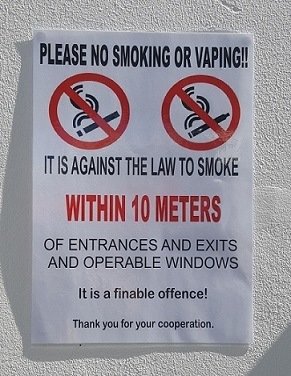For those that didn’t hear the radio interview with our minster of health on his take on the proposed legislation.
Here is the interview:
https://omny.fm/shows/the-midday-report/stricter-regulations-on-tobacco-approved-by-cabine
Silver I couldn’t find the correct thread to post into, if you could please move this thread to where appropriate
Here is the interview:
https://omny.fm/shows/the-midday-report/stricter-regulations-on-tobacco-approved-by-cabine
Silver I couldn’t find the correct thread to post into, if you could please move this thread to where appropriate







